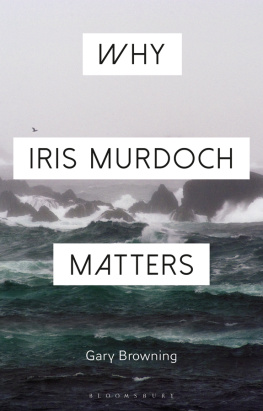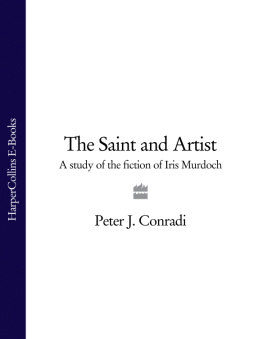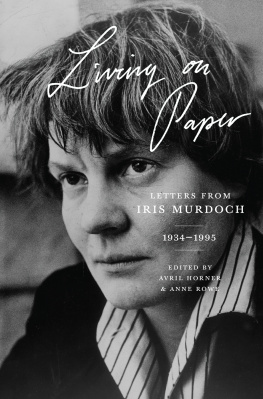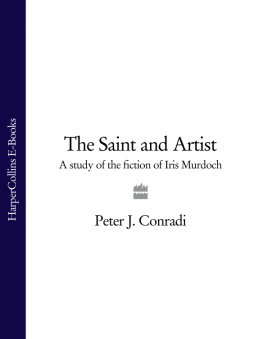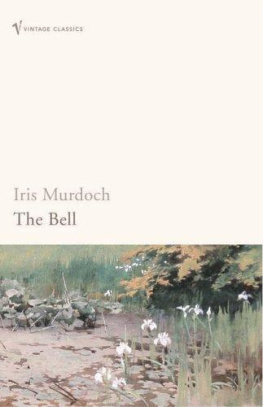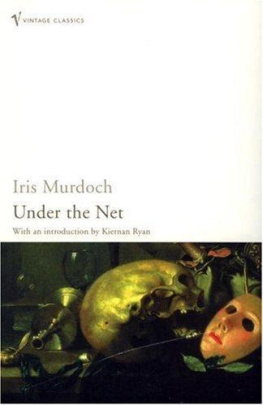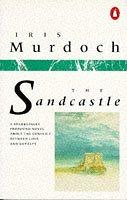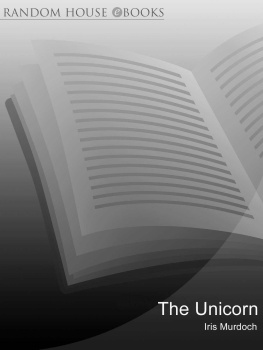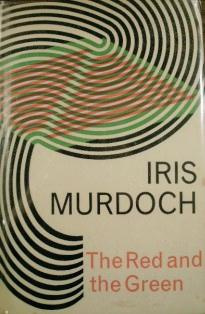Why
Iris Murdoch
Matters
WHY PHILOSOPHY MATTERS
Why Philosophy Matters focuses on why a particular philosopher, school of thought, or area of philosophical study really matters. Each book will put forward an original view about why the topic or philosopher they are discussing matters beyond the remits of purely academic debate. Each book shall offer a brief overview of the subject before exploring its reception both within and outside the academy and our authors defend radically different outlooks on where the value of philosophy lies.Why Philosophy Matters is accompanied by an ongoing series of free high-profile events (talks, debates, workshops, etc.) in Bloomsbury. Podcasts of these events will be freely available on the series page.
Also available from Bloomsbury
Iris Murdoch: Philosophical Novelist, Miles Leeson
Iris Murdoch and the Art of Imagining, Marije Altorf
Iris Murdochs Ethics, Megan Laverty

CONTENTS
This book has been with me for a long time. Over the years I have read and reread Murdochs novels, worked through her philosophical writings and have come to know some wonderful people in the Murdoch world of literary and philosophical scholars. For a number of years I have been working on and with the arguments that I have delivered in this book. I am convinced that her work fits together as a whole and that it is a mistake to separate her novels from her philosophy. They combine in addressing related themes even if she was neither a philosophical novelist nor a literary philosopher. Virtually alone in the Anglo-American world of philosophy and literature she has something to say to a lot of people about how we should live. What she has to say is disclosed in her novels, in her theoretical work and in her life. Her life should not be left to those who mock its vitality and its abundance. It is most remarkable for its association with her thought.
I have a mountain of debts, and I am pleased to acknowledge a few of them. I have appreciated the warmth and wisdom of Anne Rowe and Frances White, who know an enormous amount about Murdoch and have been happy to share their knowledge. I have also learnt much about Murdoch from Niklas Forsberg, David Robjant, Pamela Osborn, Sabina Lovibond, Miles Leeson and Nora Hmlinen. The series editor Constantine Sandis has been a helpful and stimulating companion on this project, and Liza and Frankie at Bloomsbury have always responded to my questions. I would also like to thank Sue Brown, the inter-library loan librarian at Oxford Brookes University, for being so helpful and kind. I am also grateful to Katie Giles, the resident archivist at Kingston University, and to the Library of St. Annes College for granting me access to the papers of Iris Murdoch.
Once again, I would like to thank my wife Raia, who has been a wonderful support during the project. Without reading a word of what I have written, she knows what I have to say and where I am going. Her patient attention to my explanations have contributed much to my sorting-out of one or two tricky issues. I would also like to dedicate this book to my grandchildren, Isaac, Annie and Theodore, who know how to laugh, smile and occasionally cry and to mean it when they do all these things. Is there anything more that we can ask of fellow human beings?
Introduction
Why does Iris Murdoch matter? She matters in many ways. Her novels are absorbing and fun. They make us think and feel in all sorts of ways. Her philosophy is serious and engaged. She offers a realistic reading of the personal development, morality and the political situations in which individuals are entwined. Murdoch strikes a subtle balance between the styles and objects of thinking to which she attends. She does not dismantle the borders, but takes them to be open and mutually accessible.
Murdochs mind is alert to many sides of experience the social and political as much as the personal and introspective. She is a dialectical theorist in identifying differences in style and substance and yet connecting these differences so that the value of her work resides in its overall integrity. Her life is of interest because it reflects and contributes to the ways she perceives the world. Her novels are not a disguised form of philosophy, but imagined worlds of intersecting individuals that are aligned with her philosophical analysis of the meaning of individual freedom and moral development. Her multidimensional perspective is exhibited in her reading of the historical context in which her theoretical and fictional writings are situated. Murdoch has been celebrated as a novelist and philosopher but rarely as an historian, and yet all of her work has an historical aspect. Time and its historical appreciation is vital, for Murdoch, because lived experience in all its guises is historical. The character of personal and public life, which is exhibited in the texture of her novels and in the arguments of her philosophical texts, reflects the issues and frameworks of particular historical contexts. Her philosophy is self-consciously historical in its defining but ambivalent response to the assumptions of modern philosophy. As a novelist, she might maintain nostalgia for nineteenth-century realism, but her focus is upon producing fiction for modern times that avoids its contemporary deficiencies. The generic frame for all of Murdochs work is the modern break with pre-Enlightenment traditions so as to hold subjectivity, freedom and instrumental reason to be foundational for theory and practice. Within this overall frame, she reviews distinctive assumptions in literature, philosophy, politics and religion while also invoking more fine-grained contexts in establishing background conditions for her novels and in reviewing specific forms of recent moral philosophy and metaphysics that bear upon her interests. Throughout her works, she engages with the historicity of the present and reflects upon the past from which it has emerged. She respects the past and attests to the influence of preceding philosophers and novelists but relates past thinkers to the realities of modern and contemporary experience. These realities war, political repression and cultural innovation impact upon the present in all its aspects. The past is not outside the present but is internally connected to it. We are what we have become, and this process of becoming is dialectical. The past lives on in the present perspective, which has emerged from reflection on the past.
From the beginning of her intellectual career to its close, Murdoch thought deeply about how the questions arising within the present are shaped by preceding ways of thinking. An enduring feature of her work, in all its guises, is her sense that her present was different from the past, and that reflection in the present requires clarity over the nature of that difference. In her application for the post of tutor in Anglo-Saxon ways of thinking and to bring her synoptic and historical thought to bear upon personal and social experience.
Towards the end of her life, and before the onslaught of Alzheimer disease, in an address to humanities graduates of Kingston University, she reflects on the meaning of the specific cultural context of the late twentieth century. She remarks,
All these things (politics,
For Murdoch, there is an ambivalence about modern times, in that a development of freedom and reason is to be set against a loss of wider traditional and spiritual ties. The dangers of modernity are accentuated by accelerating technological invention that privileges instrumental progress over reflection on intrinsic value. The eclipse of superstition and supernatural beliefs allows mankinds rationality to come to the fore, but the advance of reason threatens to override mankinds creativity and spiritual reflection.

